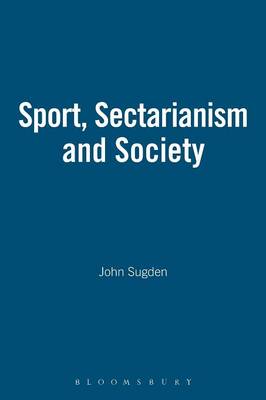Sport, Politics & Culture S.
1 total work
Sport, Sectarianism and Society in a Divided Ireland
by John Sugden and Alan Bairner
Published 1 June 1995
In Northern Ireland every significant aspect of life is bound up with the politics of division. Sport is no exception. Politics - the politics of partition - is integral to the rivalry between clubs, and indeed to the very choice of games to be played and watched. After the church, the most important sources of communal division are education, physical location and sports preference. While the importance of education and community segmentation has been recognized, the complex role which sport plays in civil and political relations in the province has been neglected. By its very nature sport provides a focus for sectarian identification and a forum for confrontation which can exacerbate conflict. State-sponsored attempts to use sport and recreation to diffuse the volatile political situation seriously under-estimate the important significance of these areas of popular culture in defining the boundaries between two warring factions. This book, the first examination of the political nature of sport and leisure in Northern Ireland, is the product of a number of years of experience and research into sport, leisure and socio-political relations in the province.
It fulfils three overlapping functions: it's a book about the political sociology of sport in Northern Ireland; it's an addition to the literature of political sociology of Northern Ireland in general; finally it's an important contribution to the growing body of knowledge about sport and politics in general. The study is centred on an explanation of the relationship between the state of Northern Ireland and the forces which determine the shape and substance of its distinctive civil societies: sectarianism, ethnicity, nationalism and social class.
It fulfils three overlapping functions: it's a book about the political sociology of sport in Northern Ireland; it's an addition to the literature of political sociology of Northern Ireland in general; finally it's an important contribution to the growing body of knowledge about sport and politics in general. The study is centred on an explanation of the relationship between the state of Northern Ireland and the forces which determine the shape and substance of its distinctive civil societies: sectarianism, ethnicity, nationalism and social class.
